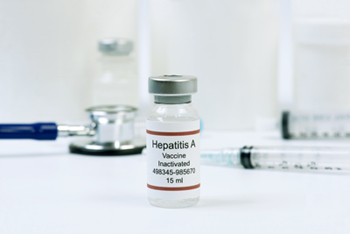Florida state health officials have issued a health advisory due to an significant increase of hepatitis A cases reported in 2018.

Since January 2018, 385 cases of hepatitis A virus (HAV) infection have been reported in Florida. This is more than three times the previous five-year average of 126 cases.
The increase in hepatitis A cases to date is predominantly in the Tampa Bay and Orlando metropolitan areas.
Although infections have occurred across all demographic groups, approximately 68% of the recent cases are among males. The median age of cases is 37 years and the highest rates of disease are among persons 30-49 years. Common risk factors include injection and non-injection drug use, homelessness, and men having sex with men (MSM).
Florida’s cases are beginning to mirror national trends and those of other states like Arkansas, California, Indiana, Kentucky, Massachusetts, Michigan, Missouri, North Carolina, Ohio, Tennessee, West Virginia and Utah.
Nationally, health officials have investigated more than 8,000 outbreak associated, non-food or waterborne, non-travel associated cases of hepatitis A.

Image/National Institute of Diabetes and Digestive and Kidney Diseases
Affordable, 5 Minute Testing with our at-home testing kits for Syphilis. No doctor or lab visits required. Order now!
Florida health officials remind the public that hepatitis A infection is a vaccine-preventable illness. The best way to prevent hepatitis A infection is through vaccination with the hepatitis A vaccine. Additionally, practicing good hand hygiene—including thoroughly washing hands after using the bathroom, changing diapers, and before preparing or eating food—plays an important role in preventing the spread of hepatitis A.
Florida: Hillsborough County experiencing ‘unprecedented number’ of hepatitis A cases
The CDC Advisory Committee on Immunization Practices recommends that the following persons be vaccinated against HAV:
• All children at age 1 year
• Persons who are at increased risk for infection
• Persons who are at increased risk for complications from HAV
• Users of injection and non-injection drugs
• Persons who are homeless
• Men who have sex with men
• Persons who have chronic liver disease
• Persons traveling to or working in countries that have high or intermediate endemicity of HAV
• Persons who have clotting-factor disorders
• Household members and other close personal contacts of adopted children newly arriving from countries with high or intermediate HAV endemicity
• Persons having direct contact with persons who have HAV.
Related:
- Rhesus macaques in Florida: Population predicted to double, and of course there is Herpes B
- Dengue: Locally-acquired case reported in Miami-Dade County, Florida
- Florida: Legionellosis cases investigated in Pinellas County
- Florida experiencing high levels of mosquito-borne virus transmission: How to protect yourself?
- Florida cow is country’s 6th BSE case


One thought on “Florida issues hepatitis A health advisory: Increases reported in Tampa and Orlando areas”